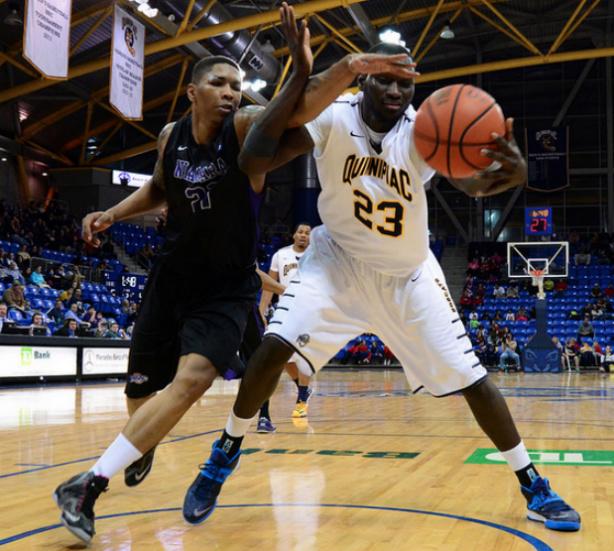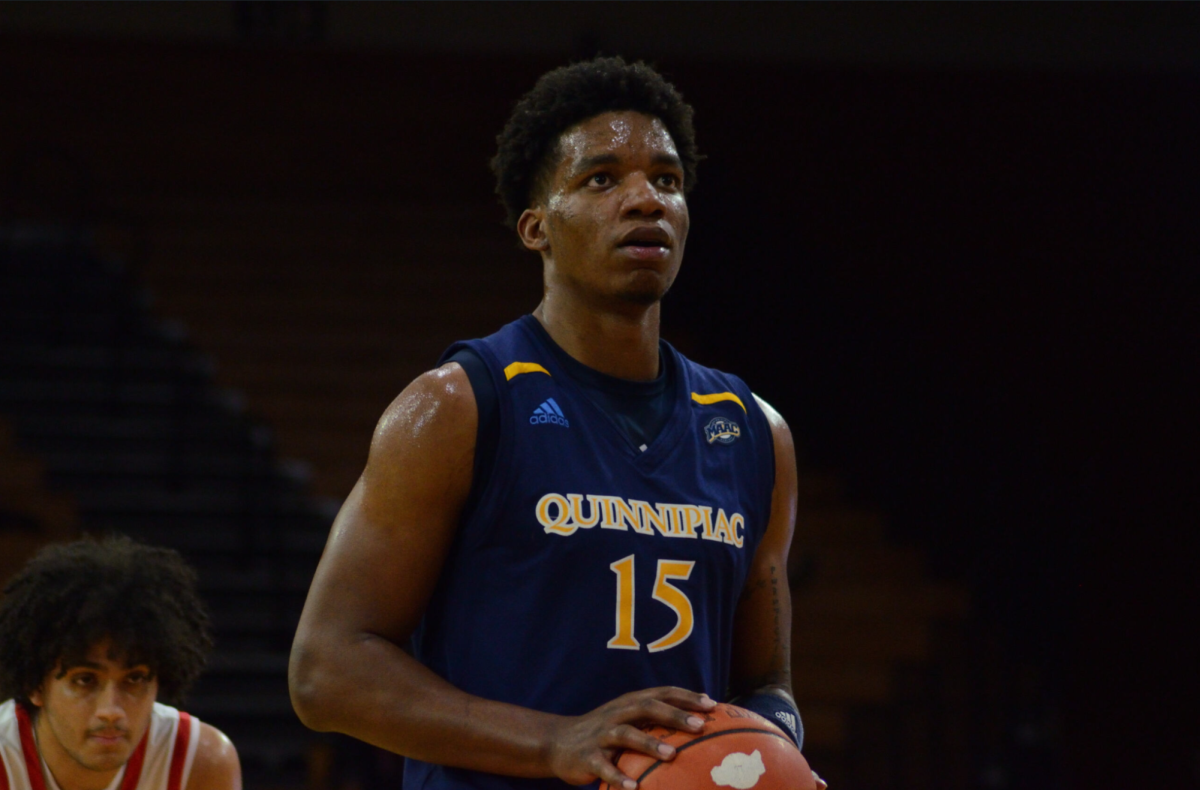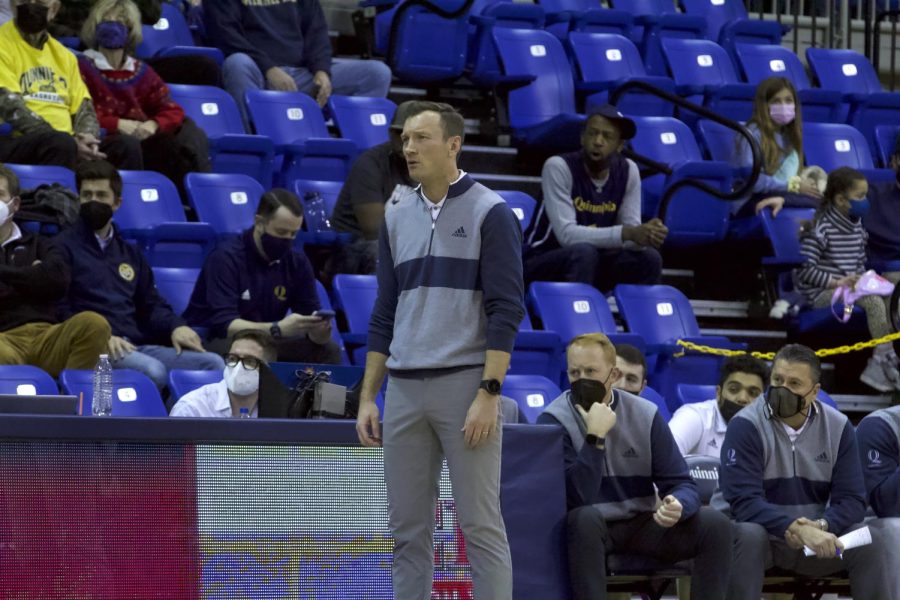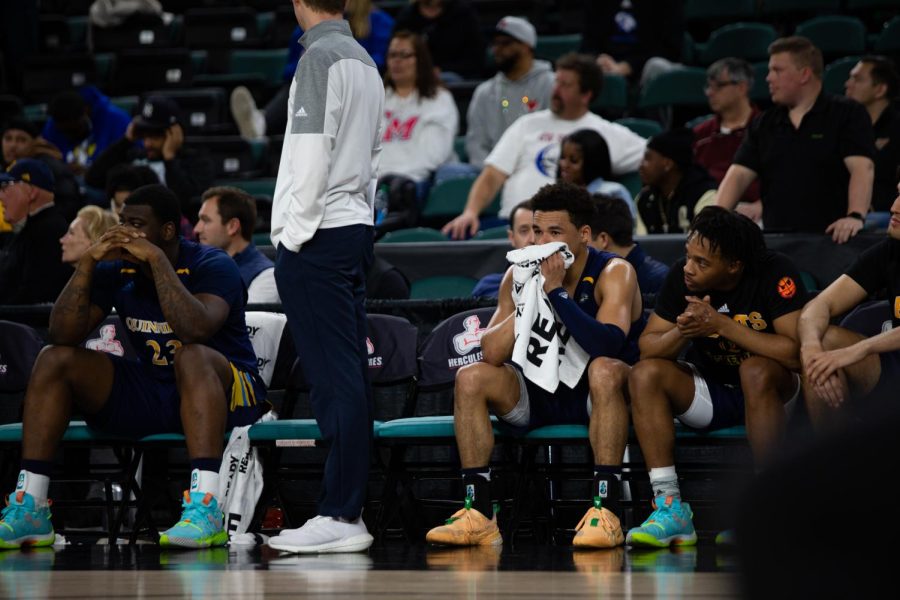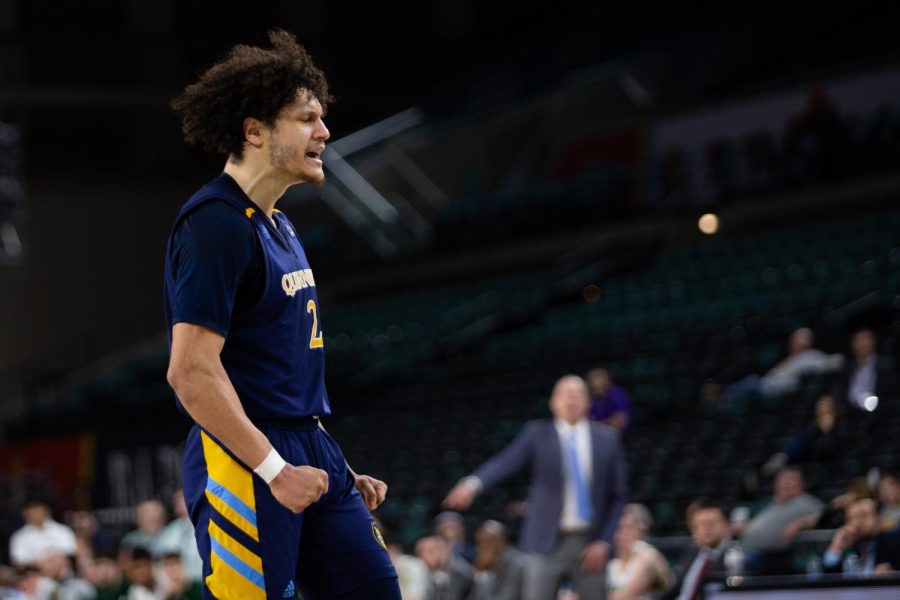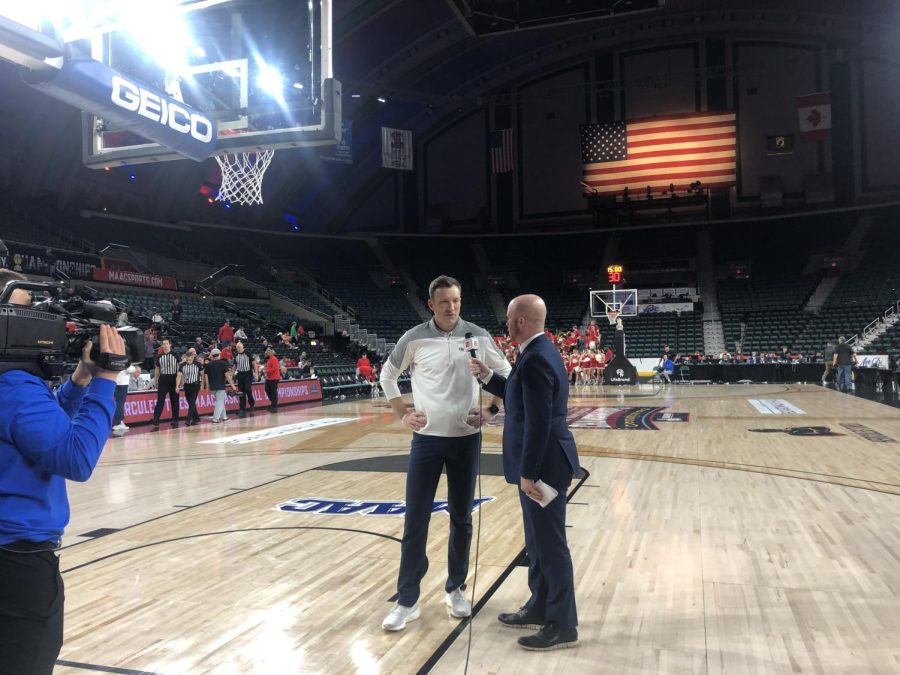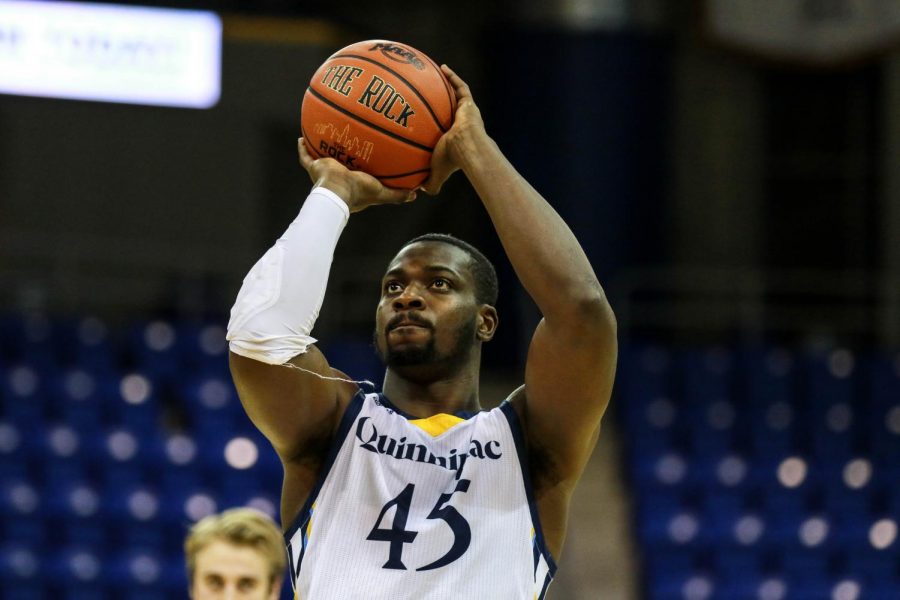Courtesy: QBSN
I’ve seen a lot of games in my four years at Quinnipiac. Not as many as the six seniors who made up Tom Moore’s eighth senior class, be it on the court or on the bench. They’ve seen many more. And they’ve been there for the practices. The road trips. The study sessions.
And the playoff disappointments. In that sense, the 80-74 loss to the 11-seeded Marist Red Foxes in the Metro Atlantic Athletic Conference Tournament was just the culmination of another year for the Bobcats. One, that like many of the others, started with promise.
There was Giovanni McLean. He was to be the missing link. When Umar Shannon went down last year, ending what very well could have been Moore’s first taste of the gilded street that is NCAA Tournament Lane, McLean was brought in to rectify the unfinished business.
Then he was out. And Quinnipiac was all on its own to find an answer. It tried to find its identity. Last week, I said Zaid Hearst was the Derek Jeter of Quinnipiac basketball. Well if he was the Jeter, Ousmane Drame was the Pedro Martinez.
His play was polarizing, enigmatic even. He may not have had an ERA under 1, but he had enough rebounds to compensate for it. When he was turned on, he was the best at what he did. When he struggled, he was the guy everyone pointed the finger at. Blessed with natural talent that didn’t even blossom until his junior year of high school, the ceiling hasn’t even been reached.
Thursday night, his last collegiate game, Drame’s performance etched beyond the term “all-star” with 27 points and 23 rebounds, the latter of which was a career-high. He got poked in the eye and made a brief exit. And while his return wasn’t exactly of Willis Reed proportions, his presence coming back for one more stretch in the final minutes offered the smallest glimmer of hope for a clearly fading Quinnipiac team.
His senior campaign was nothing short of jaw-dropping for a mid-major player. He averaged a double-double easily, essentially on one knee. The forward’s 33 points against Vermont Nov. 30 were the most seamless ever seen at that level of play. He was moved to the bench, and rather than falter at not being in the starting lineup, he flourished.
Not bad for a man who ended up on the conference’s Second Team.
Each of his baskets against the Red Foxes in his swan song were met with solemn silence from the largely pro-Marist crowd. “Ous-mahn Drah-may” echoed throughout the rafters of Times Union Center, with every mention of it serving as a sign the Bobcats weren’t quite done just yet. And it was at his doing as well.
One of my first feature pieces I ever penned at the university was on Drame. It was entitled “Ous is loose,” and looked at his “dominance” in the Northeast Conference as a freshman to that point (at least, that’s what 6.1 points and 7.3 rebounds per game seemed at that time).
In the interview, he jokingly referred to Moore as “psycho” in his manners of trying to push him to be a better player. What a difference four years can make.
He grew up. He developed from the boy the Bobcats hesitantly would feed the ball off a bounce pass with 13:28 left in the second half of a double-digit deficit to the man who Friday night foresaw himself not just playing for the Boston Celtics or Philadelphia 76ers, but starting for them too.
“Sullinger to Drame” could have a nice ring to it.
Following the game, Moore, Drame and Dimitri Floras fielded questions in grief and disbelief. One of which came from yours truly, making the coach aware of the uproar on social media over the loss, with some posing whether he was fit to continue to coach the team after eight years and no appearance in the field of 68. He waived off the question, and simply stated they expected to be there next year.
About 10 minutes later, and No. 23 cuts off the question being asked to return back to mine. He noted the fans saying that on social media didn’t have an understanding of how this was a team that likely would have won the NEC the past two seasons had it still been there (and he’s probably right about that).
“For people to go on social media and write those things, they misunderstood what’s going on,” he said. “That’s what’s happening with that.”
Then, a side of Drame I in my four years, nor anyone else in the public eye has ever seen, came out.
“And for you guys to actually listen to that or have the audacity to ask a question about what they’re saying,” he said. “It’s almost kind of disrespectful because you guys understand this better than they do, as far as the transition from a weaker league to a better league and the challenges that come with that. So with that being said, disregard that. You’re a better person than that.”
I respect Drame for standing up for his coach unprovoked. It’s noble, and for someone who was remarkably well-spoken in his senior season more than ever before, his words were pungent. The media has a responsibility to give voice to those who do not have one present. There was social media backlash, so I asked about it. Was a personal shot necessary? Probably not. But it was a question that needed to be asked. I won’t hold it against him.
Watching the body language between he and Moore for the rest of the press conference, I noticed a pat on the leg from the coach to his player, a notion of “thanks.” It didn’t matter what the critics thought, or what the tweeters could fit in 140 characters. For one night, likely his final night in a Bobcats uniform, any notion of immaturity or unreadiness for the next step took a backseat.
Ousmane Drame was at his best. And with a promising future of professional ball ahead, the “Ous” has finally been set loose.


